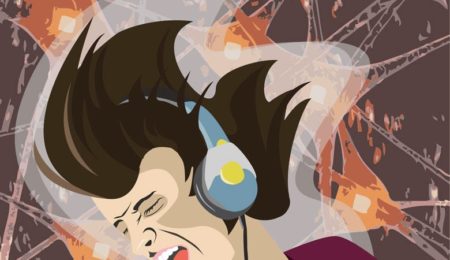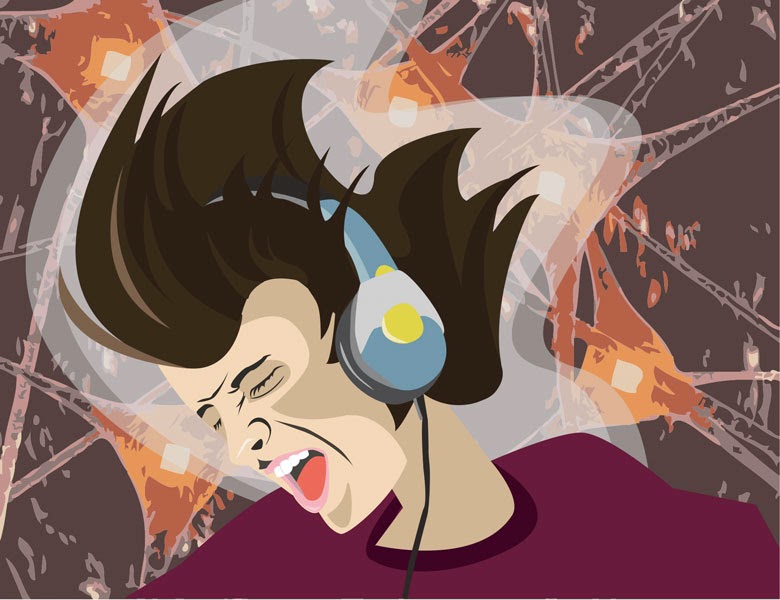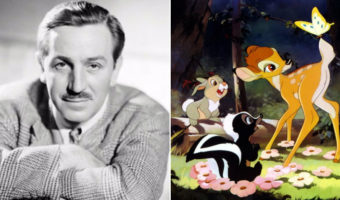10 Amazing Ways Music Affects Our Brains, #5 is Intriguing

Music holds tremendous power on emotions and thoughts. It could make your somewhat ordinary day Magical or spiritual. Music can provide solace, help you purge and cleanse, create a diversion, revitalize you, entertain, and so much more. The influence of music spreads from our genetic codes, through our bodies and thoughts and out into our relationships.
1 Verbal IQ improvementÂ
When you practice the piano, you improve not only your musical abilities but also verbal and visual skills. A study by Forgeard et al., 2008 found that, students aged 8 to 11, who had extracurricular music classes over time developed higher visual abilities and verbal IQ when compared to those who did not get any musical training. Benefits of studying a musical instrument therefore are not only purely musical but they extend to visual perception and cognition.
2 Feeling the chills
I bet you’ve felt the chills down your spine as you listened to music. In fact, a study done by Nusbaum and Silva (2010) shows that 90% of people have. How much of the chills, however depends on personality. People high on ‘openness to experience’, one of the five personality dimensions, are likely to feel them more. The study shows that people with this dimension, (openness to experience) will most likely play a musical instrument and will more often rate music as being important to them.
3 Happiness is amplified by active listening.
To get the chills if you are not feeling them, you should try harder. This is because; a recent study shows that when you try to feel happier actively, you do feel happier. Ferguson and Sheldon (2013) did a research that showed that, participants who tried actively to feel happier while listening to Aaron Copland’s upbeat classical compositions felt their moods being lifted more as compared to those who listened to the music passively. So, engage the music next time you are listening and you will experience that extra emotional power.
4 When we sing together we are brought together
Music is a social activity and when we sing together, we are brought together. Finnish students who took extended music classes were studied and it was found that they reported higher satisfaction while in school even in areas that were not related to music classes. (Eerola & Eerola, 2013). When people sing together, affiliations are increased and people tend to like each other more than they did before.
5 Music as a cure to heart diseases.
It does help reduce the anxiety and stress that’s associated with treating coronary heart disease. In a review of 23 studies that covered almost 1500 patients, listening to music helped reduce blood pressure, heart rate, and anxiety in patients with heart disease (Bradt & Dileo, 2009).
6 Music lifts you up when sad
People love music because it helps them manage their moods. It has a cathartic effect while for some people listening to sad music, under the right circumstances, can improve their mood. A Kawakami et al. (2013) study found that people enjoy sad music because it produces a mix of emotions; some positive, some negative. As we listen to music, we recognize the negative emotions but they are not strongly felt.
7 Improves our judgment
Listening to music for just fifteen seconds could change how we judge emotions on the faces of other people. Logeswaran et al. (2009) discovered that participants in a study perceived other faces as happier when they listened to a quick gust of happy music. The same applied to sad music. They got to see the biggest effect when the participants looked at faces of people with neutral expressions. People tend to project the mood of the type of music they are listening to onto other faces.
8 Music color
People tend to think of certain colors when listening to music. In fact, different cultures relate particular colors with particular music. Palmer et al. (2013) in a study of Mexico and US people found that they connected duller, darker colors with sad music and vivid colors with happy music. In a follow-up study found that these associations of music to color were due to the music’s emotional content.
9 Could Music bring back vision?
The brain’s visual areas are the ones affected in 60% percent of those who get strokes. Patients lose awareness of the objects on the opposite side where damage to the brain has occurred. (Visual neglect). Studies have however found that when these patients listen to music they love, some of the visual attention gets restored (Tsai et al., 2013). Music can therefore be used to rehabilitate stroke patients.
10 Music For Babies
You’ve seen how infants respond rhythmically to music, even those as young as five months. In fact, it’s more interesting to them than speech! A study by Zentner and Eerola (2010), found that babies spontaneously dance to all genres of music and smile a lot while doing so.
Maybe we should accept the fact that music is in our genes to stay!
[Source: www.spring.org.uk]
























